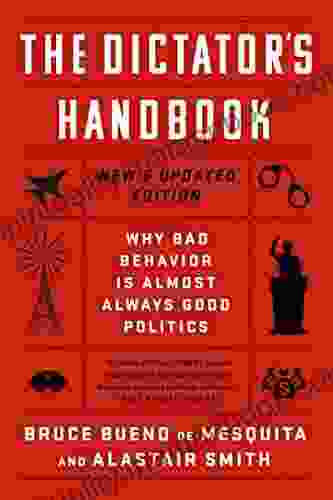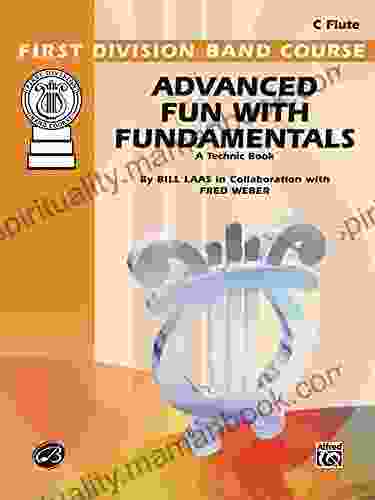Why Bad Behavior Is Almost Always Good Politics: An In-Depth Exploration of the Power of Negative Campaigning

4.6 out of 5
| Language | : | English |
| File size | : | 5736 KB |
| Text-to-Speech | : | Enabled |
| Screen Reader | : | Supported |
| Enhanced typesetting | : | Enabled |
| X-Ray | : | Enabled |
| Word Wise | : | Enabled |
| Print length | : | 462 pages |
In the realm of politics, where the stakes are high and the competition is fierce, candidates and their campaigns often resort to tactics that may be considered questionable or even unethical. From spreading rumors and engaging in personal attacks to distorting facts and exploiting fears, negative campaigning has become an increasingly common feature of political discourse. While many may condemn such behavior as corrosive to democracy, political science research consistently shows that it can often be an effective electoral strategy. This article will explore the complex reasons why bad behavior is almost always good politics, examining the psychological underpinnings of negative campaigning and its impact on the public and the political process.
The Power of Negativity
Negative campaigning derives its potency from several psychological factors. The negativity bias refers to the tendency of humans to pay more attention to negative information than positive information. This is because negative events are often more novel and threatening, triggering a stronger emotional response that prompts us to take notice and remember. Negative campaigns exploit this bias by bombarding voters with negative messages about their opponents, effectively shaping their perceptions of the candidates and influencing their voting decisions.
Moreover, negative information is often more easily recalled and persuasive than positive information. When voters are exposed to a stream of negative advertisements about a candidate, it creates a vivid and memorable impression that is difficult to shake. This can have a significant impact on their willingness to vote for that candidate, even if the negative information is later proven false or misleading.
Exploiting Emotions
Negative campaigning works by tapping into primal human emotions, such as fear, anger, and resentment. By painting a picture of their opponents as dangerous, untrustworthy, or incompetent, negative campaigns trigger a visceral response that can motivate voters to turn out against them. This is particularly effective when candidates can link their opponents to issues that evoke strong emotional reactions, such as crime, terrorism, or economic insecurity.

By appealing to voters' fears and emotions, negative campaigns can create a sense of urgency and make it seem like the stakes of the election are higher than they actually are. This can lead to increased voter turnout and a more polarized electorate, both of which can benefit the candidate who is running the negative campaign.
Character Assassination
One of the most common forms of negative campaigning is character assassination, in which candidates attempt to destroy the reputation of their opponents by attacking their personal character, ethics, or morals. This can involve spreading rumors, making false or misleading accusations, or simply engaging in personal insults. While such tactics may be seen as unfair or unethical, they can be very effective in damaging a candidate's credibility and electability.
Character assassination works by undermining voters' trust in the candidate. When voters believe that a candidate is dishonest, corrupt, or immoral, they are less likely to support them. Negative campaigns often try to create this perception by focusing on a candidate's past mistakes, scandals, or personal flaws. They may also try to link the candidate to unpopular groups or ideologies.
Perception vs. Reality
It is important to note that negative campaigning does not always have to be based on facts. In fact, it can be just as effective, if not more so, to spread rumors and innuendo that is later proven to be false. This is because the damage has already been done in terms of shaping public perception. Once a negative image of a candidate has been established, it can be very difficult to undo, even if the accusations are later proven to be untrue.

This is why negative campaigning can be such a powerful tool for political operatives. It allows them to define their opponents in a way that is difficult for them to rebut. Even if the negative information is later discredited, the damage to the candidate's reputation may already be done.
Implications for Democracy
The widespread use of negative campaigning in politics raises concerns about its implications for democracy. Critics argue that it undermines the integrity of the electoral process by creating a climate of fear and distrust. They also argue that it discourages good people from running for office, as they do not want to subject themselves to the personal attacks and character assassination that is often involved in negative campaigning.
However, proponents of negative campaigning argue that it is a necessary evil in a competitive political system. They argue that it allows voters to be fully informed about the candidates and their positions, and that it helps to ensure that only the most qualified and ethical candidates are elected to office.
Ultimately, the question of whether negative campaigning is good or bad for democracy is a complex one. There are valid arguments to be made on both sides of the issue. However, one thing is clear: negative campaigning is a powerful tool that can have a significant impact on the outcome of elections. It is a tool that candidates and their campaigns will likely continue to use for many years to come.
Negative campaigning has become a ubiquitous feature of modern politics. While it may be seen as unethical or even harmful to democracy, it is undeniable that it can be an effective electoral strategy. By exploiting psychological biases, appealing to emotions, and engaging in character assassination, negative campaigns can shape public perception, influence voter behavior, and ultimately determine the outcome of elections. Understanding the power of negative campaigning is essential for anyone who wants to understand the complexities of political communication and the role of media in democratic processes.
4.6 out of 5
| Language | : | English |
| File size | : | 5736 KB |
| Text-to-Speech | : | Enabled |
| Screen Reader | : | Supported |
| Enhanced typesetting | : | Enabled |
| X-Ray | : | Enabled |
| Word Wise | : | Enabled |
| Print length | : | 462 pages |
Do you want to contribute by writing guest posts on this blog?
Please contact us and send us a resume of previous articles that you have written.
 Top Book
Top Book Novel
Novel Fiction
Fiction Nonfiction
Nonfiction Literature
Literature Paperback
Paperback Hardcover
Hardcover E-book
E-book Audiobook
Audiobook Bestseller
Bestseller Classic
Classic Mystery
Mystery Thriller
Thriller Romance
Romance Fantasy
Fantasy Science Fiction
Science Fiction Biography
Biography Memoir
Memoir Autobiography
Autobiography Poetry
Poetry Drama
Drama Historical Fiction
Historical Fiction Self-help
Self-help Young Adult
Young Adult Childrens Books
Childrens Books Graphic Novel
Graphic Novel Anthology
Anthology Series
Series Encyclopedia
Encyclopedia Reference
Reference Guidebook
Guidebook Textbook
Textbook Workbook
Workbook Journal
Journal Diary
Diary Manuscript
Manuscript Folio
Folio Pulp Fiction
Pulp Fiction Short Stories
Short Stories Fairy Tales
Fairy Tales Fables
Fables Mythology
Mythology Philosophy
Philosophy Religion
Religion Spirituality
Spirituality Essays
Essays Critique
Critique Commentary
Commentary Glossary
Glossary Bibliography
Bibliography Index
Index Table of Contents
Table of Contents Preface
Preface Introduction
Introduction Foreword
Foreword Afterword
Afterword Appendices
Appendices Annotations
Annotations Footnotes
Footnotes Epilogue
Epilogue Prologue
Prologue Steven Lines
Steven Lines Ann Garcia
Ann Garcia Helen Sive Paxton
Helen Sive Paxton G C Roberts
G C Roberts Laura J Dull
Laura J Dull Stan Miller
Stan Miller Peter Spitzer
Peter Spitzer Elijah Muhammad
Elijah Muhammad Emma Donoghue
Emma Donoghue Amy Cross
Amy Cross Sharon Walpole
Sharon Walpole Kelli Stuart
Kelli Stuart Anne Peterson
Anne Peterson Beate Ziebell
Beate Ziebell Jordan Lee Knape
Jordan Lee Knape Diana Gabaldon
Diana Gabaldon Christina Delia
Christina Delia Roman Payne
Roman Payne Angela King
Angela King Rod Khleif
Rod Khleif
Light bulbAdvertise smarter! Our strategic ad space ensures maximum exposure. Reserve your spot today!

 Travis FosterVegan Recipes For Beginners: Vegan Food That Is Making The World A Better...
Travis FosterVegan Recipes For Beginners: Vegan Food That Is Making The World A Better...
 Joseph ConradUnveiling the Enchanting World of Grimstone Croft and Wesson Adventure Croft
Joseph ConradUnveiling the Enchanting World of Grimstone Croft and Wesson Adventure Croft Wesley ReedFollow ·7.3k
Wesley ReedFollow ·7.3k Braden WardFollow ·13.5k
Braden WardFollow ·13.5k Jermaine PowellFollow ·16k
Jermaine PowellFollow ·16k William PowellFollow ·3.7k
William PowellFollow ·3.7k Noah BlairFollow ·15.2k
Noah BlairFollow ·15.2k Lord ByronFollow ·16.2k
Lord ByronFollow ·16.2k Haruki MurakamiFollow ·18.3k
Haruki MurakamiFollow ·18.3k Drew BellFollow ·14.1k
Drew BellFollow ·14.1k

 Thomas Powell
Thomas PowellHair Care Essentials for Crochet Braids: A Protective...
Crochet braids are a versatile and...

 Philip Bell
Philip BellNative Nations of North America: A Comprehensive Guide
North America is home to a...

 Jackson Hayes
Jackson HayesCall Me Crazy: My Unique Journey with Green
In the kaleidoscopic tapestry of life, where...

 Graham Blair
Graham BlairUnveiling the Literary Treasures of Michigan: A Journey...
The literary landscape of...
4.6 out of 5
| Language | : | English |
| File size | : | 5736 KB |
| Text-to-Speech | : | Enabled |
| Screen Reader | : | Supported |
| Enhanced typesetting | : | Enabled |
| X-Ray | : | Enabled |
| Word Wise | : | Enabled |
| Print length | : | 462 pages |












